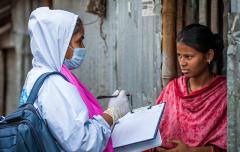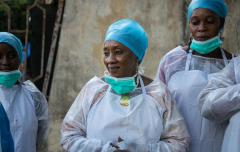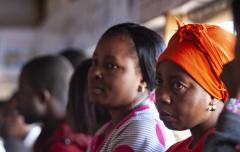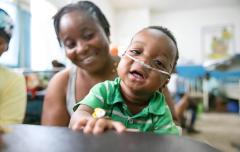Damilola Ogunbiyi and Riccardo Puliti: Energy access takes center stage in COVID-19 fight, powering Africa's recovery
This article was first published on All Africa
COVID-19 is causing unprecedented disruptions around the world, with healthcare systems struggling and billions of people relying on electricity while confined to their homes. The pandemic is now spreading across Africa, home to the majority of those who live without electricity. To avoid the worst impacts and help contain the virus worldwide, we must act now to deploy solutions that can provide life-saving energy access to those who need it most.
Energy services are key to preventing disease and fighting pandemics - from powering healthcare facilities and supplying clean water for essential hygiene, to enabling communications and IT services that connect people while maintaining social distancing.







